
BLOOMINGTON— Sycamore Land Trust, a Bloomington-based conservation nonprofit protecting 11,418 acres of land in southern Indiana, was awarded a global conservation research grant from the Indianapolis Zoological Society, Inc., to advance knowledge and protection of the state-endangered Kirtland’s Snake (Clonophis kirtlandii) and threatened cypress firefly (Photuris walldoxeyi) in Monroe County and across their range.
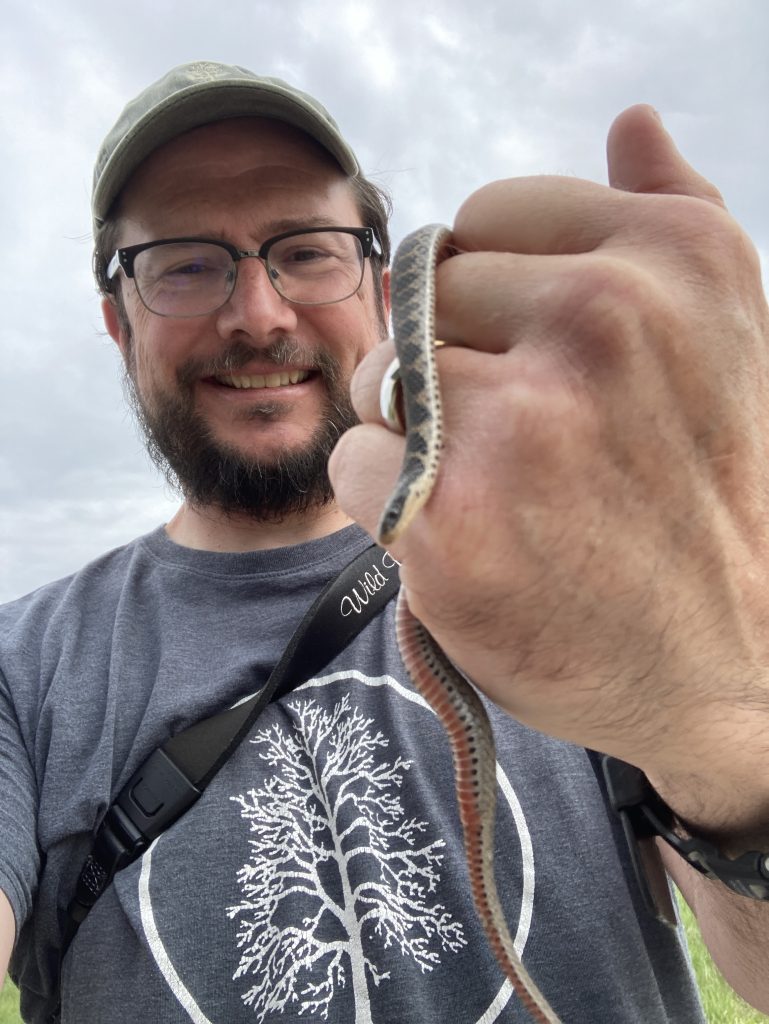
This project aims to advance these imperiled species’ research techniques and management efforts by improving monitoring and habitat management at Sycamore’s nature preserves in its Beanblossom Creek Conservation Area (BCCA).
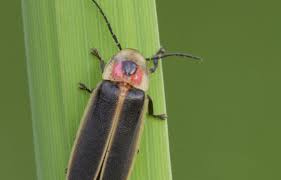
Sycamore is a local leader in conserving vulnerable, threatened, and endangered species in southern Indiana by restoring and managing natural habitats, particularly wetlands. The 2,000 acres that Sycamore manages in the BCCA in Monroe and Brown Counties provides a refuge of exceptional wetland habitat for several rare and endangered species, including two of Indiana’s most remarkable but lesser-known species: the state-endangered Kirtland’s snake and threatened cypress firefly.
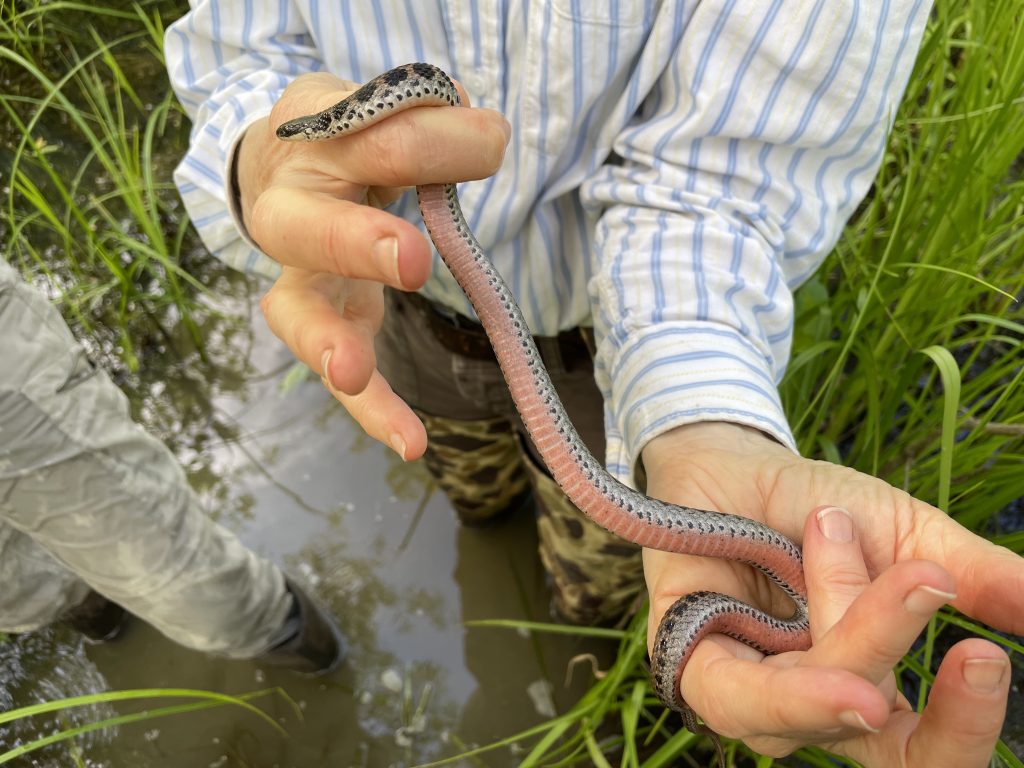
Both have been found in Sycamore’s 733-acre Beanblossom Bottoms Nature Preserve within this conservation area. Filling in information gaps regarding these species and the populations at the preserve will assist in effective conservation action that benefits them. Successful protection requires understanding habitat needs, limitations, and current population trends.
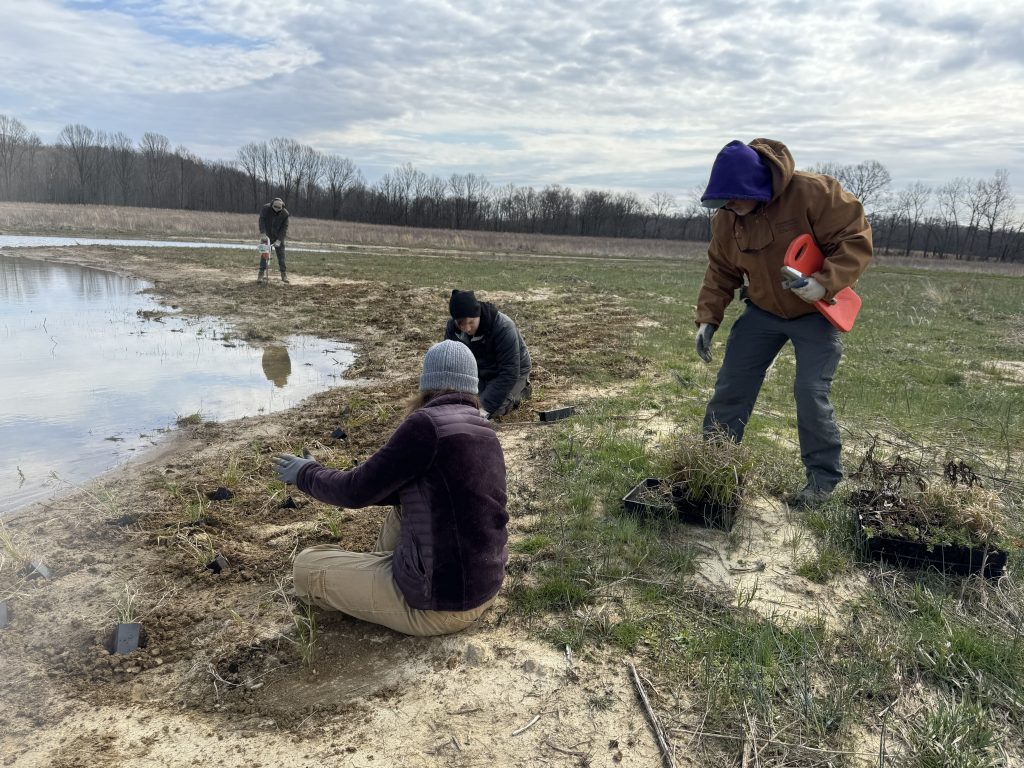
This project will pair multiple monitoring survey methods with habitat assessments to develop an adaptive conservation plan for Sycamore’s protected properties. By the end of 2024, Sycamore will restore and “rewild” at least 60 acres of suitable, constructed wetlands in the BCCA using native plants grown in Sycamore’s Native Plant Nursery, a volunteer-powered project that grows vegetation for habitat restoration from local seeds collected from native plants growing on Sycamore nature preserves. The landscape will contain restored wetland areas measured by sustained shallow pools, the water table level, and the amount of seasonal and permanent flooded regions. A corridor network of suitable habitats for the Kirtland’s snake and cypress firefly will be developed from the restored wetlands. Improving habitat quality on Sycamore’s nature preserves will sustain resilient populations in the face of disturbances, disease, and climate change.
Sycamore will collaborate with the Indiana Department of Natural Resources and other research experts to conduct two species survey and habitat assessment projects within the BCCA during the spring and summer of 2024 and publish a final summary report comparing various research techniques to determine which survey method per species was the most effective monitoring tool. This report will be shared with the Indiana Department of Natural Resources, the Global Center for Species Survival, the Indianapolis Zoo, the Xerces Society, and conservation departments that manage these species or their habitats within their ranges. This will increase the number of surveys conducted or planned to study these two vulnerable species.
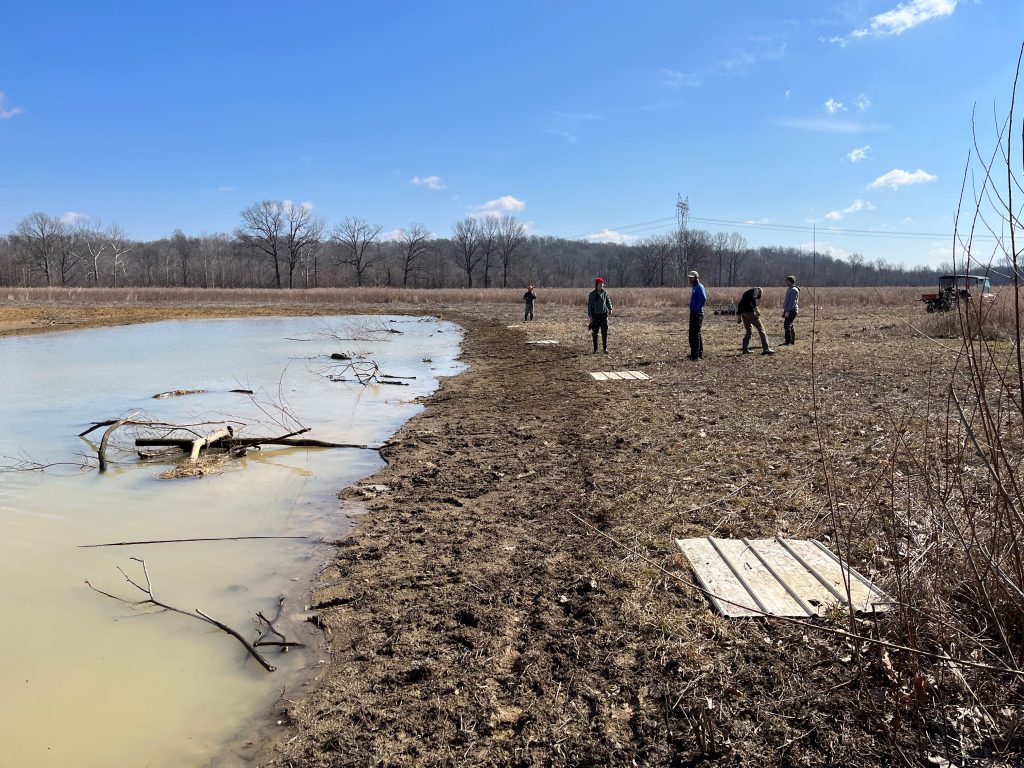
Sycamore will also increase public investment in conserving these species by hosting guided hikes within the BCCA, sharing educational information, and inviting BCCA neighbors and the public to a species informational talk. Community education about the cypress firefly and Kirtland’s snake will integrate discussion and consideration of these species in current local action to tackle the threats impacting these species, such as expanding light pollution initiatives for birds to include fireflies.

“This grant will help us conduct research on two rare species that depend on wetlands and inhabit the preserves we are protecting,” said Chris Fox, Sycamore’s Land Stewardship Director. “We focus a lot of our work in the Beanblossom Creek area and wetlands in general and know that these species occur on our preserves, and in the case of the cypress firefly only occur on our preserve in this area. The information we gather will be very helpful for us to be able to learn more about their populations and the habitats they tend to be associated with.
“This research will not only help guide our future restoration projects and current stewardship activities, but it could also help fill some informational gaps to a broader scientific/conservation community. For example, the Kirtland’s snake was up for consideration for federal listing under the Endangered Species Act but was not accepted due largely to a lack of research. This grant will also allow us to try different survey methods to find which methods work best so our future surveys can be more productive. This is the first grant we received primarily for research purposes which is also extremely exciting especially since I believe science should help guide our stewardship.
“I am excited to build this partnership with the Indianapolis Zoological Society, Inc. They are a wonderful organization, and I am hoping this will be just the beginning of a long term partnership.”



